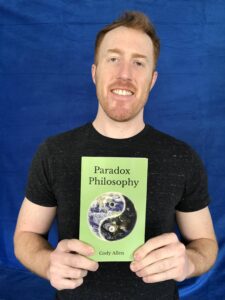 A liberal society is one in which the people are free from violence, intimidation, and oppression. “People must be able to make free choices about their lives and have the means to carry them out without the menace of unreasonable punishment or draconian social sanctions.” Despite what we may think about the structure of such a society, our author’s argue that it requires a balance between a powerful government and a powerful citizenry. “A strong state is needed to control violence, enforce laws, and provide public services that are critical for a life in which people are empowered to make and pursue their choices. A strong, mobilized society is needed to control and shackle the strong state.” With no government, the people are pitted against each other in a zero-sum game. With too much government, there is likewise no freedom. Liberalism requires a balance: when either the state or the people gain in power, the other must respond in kind, otherwise the scales will tip.
A liberal society is one in which the people are free from violence, intimidation, and oppression. “People must be able to make free choices about their lives and have the means to carry them out without the menace of unreasonable punishment or draconian social sanctions.” Despite what we may think about the structure of such a society, our author’s argue that it requires a balance between a powerful government and a powerful citizenry. “A strong state is needed to control violence, enforce laws, and provide public services that are critical for a life in which people are empowered to make and pursue their choices. A strong, mobilized society is needed to control and shackle the strong state.” With no government, the people are pitted against each other in a zero-sum game. With too much government, there is likewise no freedom. Liberalism requires a balance: when either the state or the people gain in power, the other must respond in kind, otherwise the scales will tip.
In their book, our author’s refer to this balance of power as the ‘Red Queen’ effect, taken from the tale of Alice in Wonderland. In the fable, the Red Queen tells Alice that she must keep running if she is to stay in the same place. Metaphorically, this applies to the populace of a liberal democracy that must keep running if they are to keep up with the expanding powers of their governmental elite. The same is true for governments when their citizens gain power for themselves. If either stop running while the other continues, the balance of power is thrown off and liberalism is jeopardized. Just like Alice, we must all keep running in order to maintain our position (and it may often feel as though we are going nowhere).
One of the earliest liberal democracies examined by our authors is that of Athens at the time of Solon (630-560 BC). What made Solon exceptional was his recognition of the balance needed between state and society. The more he “managed to strengthen regular Athenians politically, the further he went in building state institutions. And the more these institutions took shape, the further he went in establishing popular control over them.” Solon came to lead at a time when the Athenian elite held a majority of the power, and in order to strengthen the power of the people he took actions like banning debt peonage, redistributing lands, and widening access to political decision making bodies. In order to keep some power for the elites, he structured society into four classes, and only men from the top two could be elected to government. He also codified the laws of the land and applied them to everyone: anyone could bring a lawsuit before the judicial councils and have it be heard.
Justice for the poor was instrumental in balancing the power of ancient Athenian society and has remained a pillar of liberal societies since. It was this striving for justice that helped England achieve its own liberal society. King Henry II oversaw the creation of the ‘eyres,’ around 1176, which was a “system of itinerant royal judges who toured the country with broad authority to judge different types of cases.” When considering a dispute, judges began by summoning ‘twelve lawful men’ from the local area to aid them in their deliberations, a practice that would eventually transform into the twelve members of a jury we now hold as standard practice in our current judicial system. This reform triggered a reaction from the people as “society came to participate in conflict resolution in new ways.” This was the Red Queen effect working in beautiful harmony: as the state judiciary gained power, so did the people via their participation in the process, and society as a whole benefitted.
Many people today do not live in liberal societies and are subject to either all-powerful governments (China, for example, or North Korea) or all-powerful societies that have remained factional and resistant to centralized government (Tajikistan and Montenegro, for instance). Some societies have been unable to progress toward liberalism due to a stifling ‘cage of norms,’ which are customs passed down over generations that are difficult to break. In India, for example, this is the caste system, a practice that elevates some, persecutes others, and keeps the whole of society fragmented against itself and therefore unable to organize on a grand scale. In many parts of Africa, tribal traditions have the same effect—disallowing the formation of a central authority.
The founders of the United States understood the necessity of balancing power as well (thus the division of power between executive, legislative, and judiciary branches of government) and tried their best to create a Constitution that honored both the state and the people. Many state legislatures balked at ratifying the Constitution upon first consultation, however, believing that the document awarded too much power to the state. They refused to ratify the Constitution and accept the authority of a federal government without more power in the hands of the people. Thus, a bill of rights was written and added to the agreement so as to further enshrine the balance of power.
Despite these initial precautions, the past several decades have seen the elite members of US society become more and more powerful while the citizenry has failed to keep pace. The signs of increasing governmental and elite power include: the top 1% holding more wealth than the bottom 50%; the monopolization of many industries by massive corporations; the FBI and CIA conducting secret operations with almost no oversight; mainstream media reporting on behalf of the government instead of on behalf of the people; the patriot act and the mass domestic surveillance revealed by Edward Snowden; the FED printing endless money to pay for things that the people don’t approve of. And, on the flip side, the citizenry in our country seems to have less and less power than ever before: union participation is at an all-time low; drug overdoses leading to death are increasing (often due to people feeling hopeless about their lives); a similar increase in gun violence; the cultural divide between Left and Right that causes everyone to suffer needlessly. The general absence of political education is also a sign: I never paid much attention to politics or the government’s actions until my mid-20s, for example. All of these signs point towards a future where we in the United States leave the liberal corridor and become dominated by an authoritarian government.
One of the most important necessities for a proper balance of power is trust. For example, our authors examine the government of Denmark, who in 2006 voted to publish a law requiring internet providers to “store information on users’ source and destination IP addresses, port numbers, session types, and time stamps.” In response, international privacy advocate groups announced that Denmark had become an ‘extensive surveillance society.’ However, the Danish people were not up in arms and did not demand the cessation of the data-collection practices. Meanwhile, the bombshell revelations in the United States that the NSA is collecting the same data on its citizens was met with uproarious anger (despite the fact that nothing was changed). Why were the Danish and the U.S. responses to state surveillance so different? Because the Danish government announced their intentions publicly, promised to use their new power appropriately and with public oversight, and maintained the trust of their citizens. The United States government operated in secret, distrusting the very people they are meant to protect.
What does all this information mean for the future of our myriad global societies? This is a tough question to try and answer, and our authors are quick to point out that it is incredibly difficult, perhaps truly impossible, to predict which countries will remain within the liberal corridor and which will be pulled out either by a despotic government, an absent one, or some calamitous unforeseen event (like war or a pandemic). Whatever comes our way, it is imperative to remember that like many things in life, liberal societies require balance.


